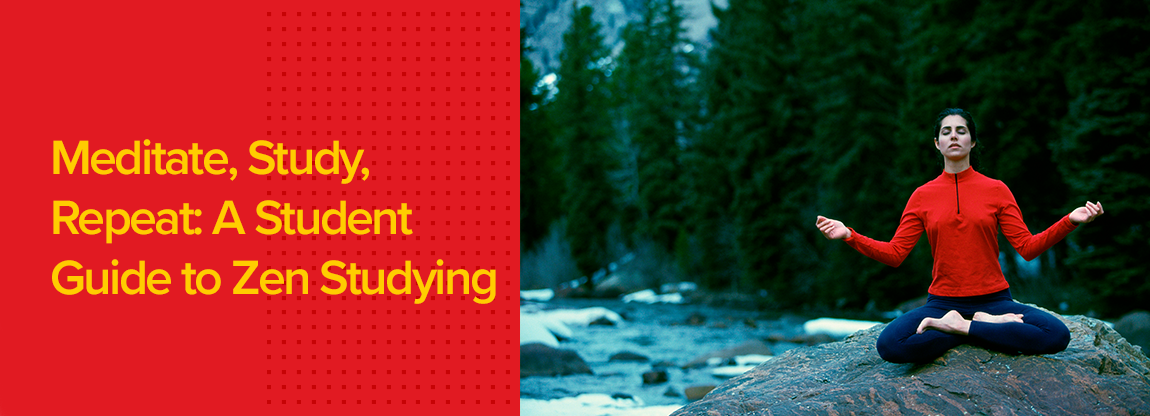Meditate, Study, Repeat: A Student Guide to Zen Studying
During the Pandemic, we had to handle a lot of new and difficult situations, especially when it came to education with remote studying and learning. When studying online, it is difficult to concentrate and keep motivated for most people. I overcame these challenges with help from a very simple tool, that tool is called ‘meditation.’
I would like to start off with a study conducted by the Columbia University Medical Center. They state that meditation cannot only help you to increase focus and learn concentration, but also improve memory and attention span, improve sleep, reduce stress, anxiety and depression, and finally build a stronger immune system and better physical/psychological resilience. These qualities are all good for being a healthy human being. Additionally, they are useful for your study life too. Who wouldn’t want to be more focused, have a higher attention span and remember more? Just to name a few.
You too can maintain your focus and keep yourself motivated during your studies through meditation, and you can do it in three simple steps:


1. Mindfulness - Focus on something, such as your breath, a static point in front of you, or just nature sounds such as a river or birds chirping.
2. Posture - Try sitting, standing or laying down with a straight back, but still in a relaxed position. You can do this on the floor and in your chair.
3. Consistency - If you meditate 10 minutes every day for a year, this equals a total of 60 hours. It is better to do it regularly and consistently for a shorter time, than less often and for a longer amount of time.
"I overcame these challenges with help from a very simple tool, that tool is called meditation."
You should start feeling the results after 2 weeks.
But enough talking about the theory, let’s jump into some practice.
I want you, wherever you are while you are reading this right now, to take a mindfulness moment. Notice how are you sitting or standing right now. Are you sitting or standing with a straight back or with a bent one? Imagine there is a string coming out of your head at the middle of your skull. It is lifting you up until you have a completely straight back. When you have done that, I want you to now focus on your breathing. Is it deep or shallow? Take a deep breath into your belly and let it flow out again. You can also close your eyes. Breathe in twice more and imagine, that with each exhale, you are getting more and more relaxed.
Now how do you feel? Do you feel more relaxed? Congrats, you just meditated!
"It has helped me throughout the years to achieve increased concentration, focus, attention and memory – all of which have helped me study better."
This is what I’m doing every day for at least 20-30 minutes. The first thing I do in the morning when I get up is to sit down and breathe in deeply, while keeping a straight back. I have been meditating for 7 years now, and I cannot imagine my life without it. It has helped me throughout the years to achieve increased concentration, focus, attention and memory – all of which have helped me study better.
Now it’s your turn!


Meet the Author
Nils is a McGraw Hill Student Ambassador residing in Germany. He joins McGraw Hill as an Alumni Ambassador to share his successful experience using Connect and SmartBook 2.0 with new and current students.
Nils is very passionate about finding different and innovative ways to improve how we learn, and is an advocate for various mindfulness methods that can improve student success and wellbeing.
Would you like to learn more about Nils' learning experience or gain some valuable student advice?
Click here to contact him directly.
Are you interested in hearing about our latest offers, initiatives and services?
If so, please sign up to our exclusive student mailing list. Note, you can “opt-out” easily at any point in time.

